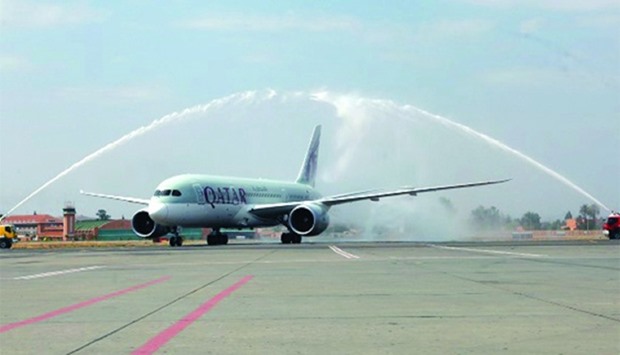On board flight QR1395 was a Qatar Airways delegation led by Dr Hugh Dunleavy, the airline’s chief commercial officer, who was greeted by Marrakech Menara Airport general manager Nawal Mounir, Morocco’s Minister of Tourism Lahcen Haddad and Qatari counsellor to Morocco Mansour Abdullah al-Sulaiteen. T
To celebrate the first flight, Qatar Airways hosted an Iftar for VIPs, officials, authorities, trade and media in Marrakech.
Qatar Airways Group chief executive Akbar al-Baker said, “Marrakech is one of Morocco’s most popular cities for tourists, and it is our pleasure to offer this vibrant destination to our customers, while also opening up seamless connectivity to more than 150 cities around the world to those travelling from Morocco through our hub at Hamad International Airport.
“As one of the country’s economic centres, there is immense potential in Marrakech, both in terms of tourist and business travel, and we are pleased to offer the services of the world’s best airline to passengers travelling for all purposes.”
With a population of more than 920,000, Marrakech is the fourth largest city in Morocco and the second city served by Qatar Airways, with flights three times a week from Doha on Wednesday, Friday and Sunday via Casablanca. The return flight from Marrakech travels directly non-stop to Doha.
Qatar Airways began its Morocco operations in 2002. Today, customers can fly daily on Qatar Airways’ Boeing 787 Dreamliner to Casablanca from Doha.
Additionally, through a codeshare partnership with Royal Air Maroc, Qatar Airways offers customers the opportunity to “seamlessly connect” to destinations throughout Morocco, Spain as well as north and west Africa, with the additional benefit of “enhanced frequent flyer benefits”, according to a statement.
Import and export businesses in Morocco are also expected to benefit from the new service, which provides up to 33 tonnes of belly-hold cargo capacity a week, the statement notes.

